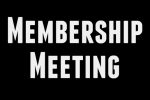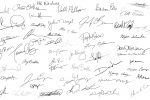The newsonomics of crossover | Nieman Journalism Lab
The signs are everywhere — the signs of crossover. We’re not there yet, but publishers are starting to sense that the time when their business models become more about digital and less about print gets closer every day.
And a shout-out to Digital First Media and the media-company-formerly-known-as-Journal-Register-Company:
Why is JRC apparently meeting this crossover challenge better? First, the company is hell-bent on selling digital advertising of all kinds, having introduced dozens of new products in its marketplaces, orienting its sales staff squarely at digital. Second, JRC operates in smaller markets, and those have suffered less print ad revenue loss than larger city dailies. Or as Paton would put it: stacks of digital dimes can almost add up to digital dollars, and when they do, the promised land of growing digital EBITDA is in sight.
The newsonomics of 2013’s second half | Nieman Journalism Lab
The inestimable Ken Doctor takes a look at “the key storylines the American newspaper business will be following — or living through — over the rest of this year?”
Chuck Schumer, Lindsey Graham introduce new media shield law | Politico
The New York and South Carolina senators have written a new shield bill that protects the media from revealing information and sources during news gathering and requires courts to “apply a balancing test before compelling disclosure” from journalists. The bill would also require reporters’ be notified within 90 days of their records being reviewed by Justice and require the courts to arbitrate Justice’s media records requests.
In Bargaining, a Little Faith Never Hurts | The Newspaper Guild
In 2011, anticipating a contract fight with the Gannett-owned NBC affiliate in St. Louis, Shannon Duffy had an inspired idea. The administrative officer of the United Media Guild added a clergyman to the unit’s bargaining team.
The results were interesting:
Ultimately, workers at the top of the KSDK wage scale accepted a pay freeze. But lower-paid production assistants received a 10 percent pay hike — not something the company had been prepared to offer.
“I think it had everything to do with Rev. Pulido being there,” Duffy said. “We started talking about how miserable their pay is and ‘how can a corporation that has all this wealth pay their production assistants such a lowly wage?’ I think we shamed them.”
Image source: Mike Licht, NotionsCapital.com via photopin cc






